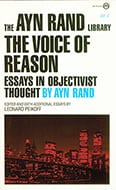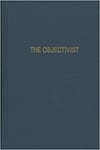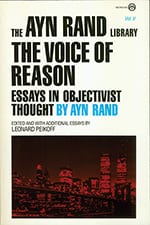“Altruism as Appeasement” was originally published in the January 1966 issue of The Objectivist, now available in paperback, and later anthologized in The Voice of Reason (1989).
A few years ago, on the occasion of giving a lecture at M.I.T., I met a young student who was earnestly, intelligently concerned with opposing the trend to collectivism. I asked him his views on why so many of today’s young intellectuals were becoming “liberals.” He could not give me a full answer. But a few weeks later, he wrote me a remarkable letter.
He explained that he had given a great deal of thought to my question and had reached certain conclusions. The majority of college students, he wrote, do not choose to think; they accept the status quo, conform to the prescribed code of values and evade the responsibility of independent thought. “In adopting this attitude, they are encouraged by teachers who inspire imitation, rather than creation.”
But there are a few who are not willing to renounce their rational faculty. “They are the intellectuals — and they are the outsiders. Their willingness to think makes them shine forth as a threat to the stagnant security of the levelers in which they are immersed. They are teased and rejected by their schoolmates. An immense amount of faith in oneself and a rational philosophical basis are required to set oneself against all that society has ever taught. . . . The man who preaches individual integrity, pride and self-esteem is today virtually nonexistent. Far more common is the man who, driven by the young adult’s driving need for acceptance, has compromised. And here is the key — [the result of] the compromise is the liberal.
Per our agreement with publishers, to make room for other Ayn Rand non-fiction content, this essay has been temporarily removed, but will return in due course.






